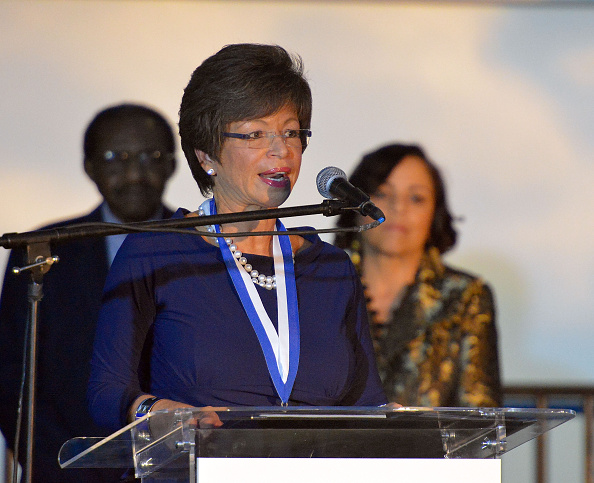
After taking heat for not addressing issues affecting women and girls of color, the White House will host a summit Friday on expanding opportunity for them.
Senior Advisor Valerie Jarrett and the White House Council on Women and Girls will host women who are experts on a range of subjects such as violence, workers rights, hip hop and health as it releases an update to the 2014 report “Women and Girls of Color: Addressing Challenges and Expanding Opportunities.”
The summit will focus on a range of issues including economic development, healthcare, criminal justice, vulnerability to violence, hip-hop, and images of women in media. Participants include Attorney General Loretta Lynch, Tina Tchen of the White House Council on Women and Girls, Cecilia Muñoz of the White House Domestic Policy Council, MSNBC host Melissa Harris-Perry and Teresa Younger of the Ms. Foundation.
The Administration has found itself in an interesting position in President Obama’s second term. Though Obama was praised for taking steps to address problems facing boys and young men of color through his My Brother’s Keeper Program, the gendered focus made many girls and women’s advocates wondering about their issues.
The African American Policy Forum based at Columbia Law School penned an open letter to the president after the launch of My Brother’s Keeper saying, “women and girls of color are not doing fine, and until they are, men and boys will not be doing fine either.” The Forum’s Executive Director called for more attention to the topic in a recent op-ed in the Washington Post.
Some of the statistics about the state of women and girls of color are pretty bleak: according to a 2015 report by theNational Coalition on Black Civic Participation, a black female high school graduate makes about $2,200 less than a white male dropout and black women are near the bottom of earning across all levels of education.
Read More: Sandra Bland’s Not the First Black Woman to Experience Police Violence
A 2014 report by the NAACP Legal Defense Fund found that young black girls were suspended at a rate six times higher than their white female counterparts. According to the Department of Health and Human Services, though teen birth rates have declined across races, Hispanic teens give birth at a rate of 41.7 per 1,000—about twice the rate of white teens. There have been some improvements in educational attainment; women of color make up 23% of all college students and Asian, American Indian and Hispanic women’s graduation rates more than doubled between 2009 and 2012.
There’s also been an uptick in interest in bringing an intersectional focus to conversations about race in the country. Recent videos depicting women of color facing violence at the hands of law enforcement have shined a spotlight on the risk females face at the hands of police, something that the #SayHerName campaign highlighted last spring.
The Obama Administration has long touted the progress of black women and women of color and often used it to justify the need to focus on the problems facing boys ahead of those facing girls and young women. During a speech before the Congressional Black Caucus in September, Obama said “despite structural barriers of race and gender, women and girls of color have made real progress in recent years,” noting the drops in pregnancy rates and rise in four-year college completion rates. “That’s good news.”
But in that same speech, Obama also made a point women’s activists have been making for quite some time. “There’s no denying,” he said, “that black women and girls still face real and persistent challenges.”
He added, “we got to do more than just say we care, or say we put a woman on ten-dollar bill, although that’s a good idea. We’ve got to make sure they’re getting some ten-dollar bills; that they’re getting paid properly. We’ve got to let our actions do the talking.”
Friday’s event could be another step in that process.
Read Next: White House to Women and Girls of Color: We Care
More Must-Reads from TIME
- How Donald Trump Won
- The Best Inventions of 2024
- Why Sleep Is the Key to Living Longer
- Robert Zemeckis Just Wants to Move You
- How to Break 8 Toxic Communication Habits
- Nicola Coughlan Bet on Herself—And Won
- Why Vinegar Is So Good for You
- Meet TIME's Newest Class of Next Generation Leaders
Contact us at letters@time.com